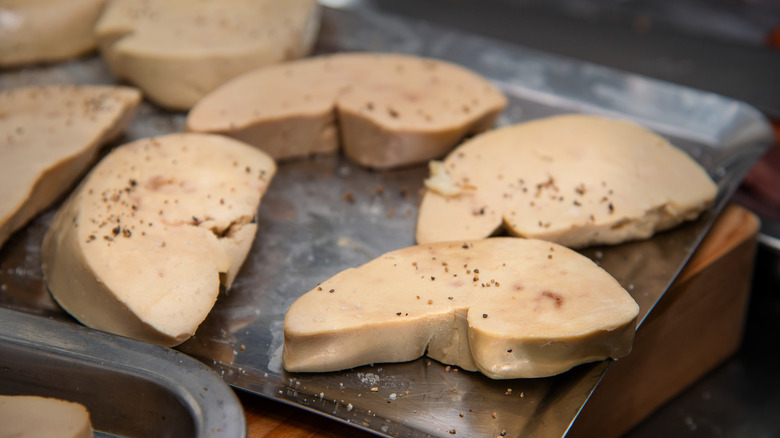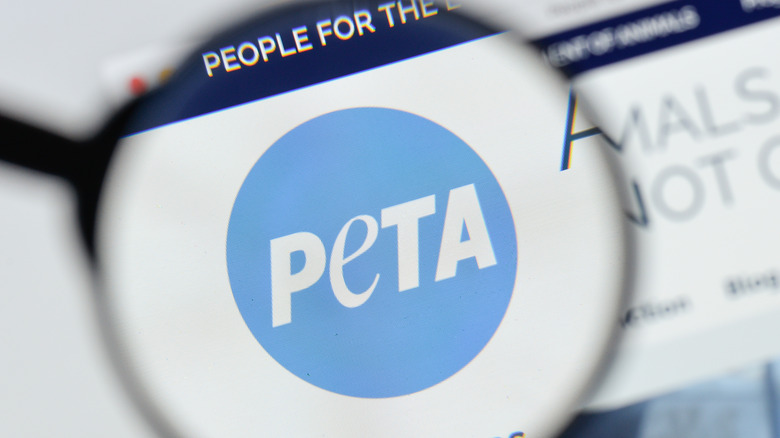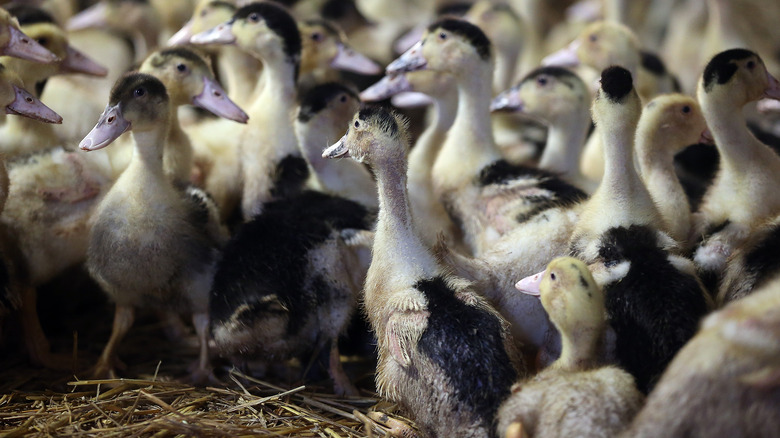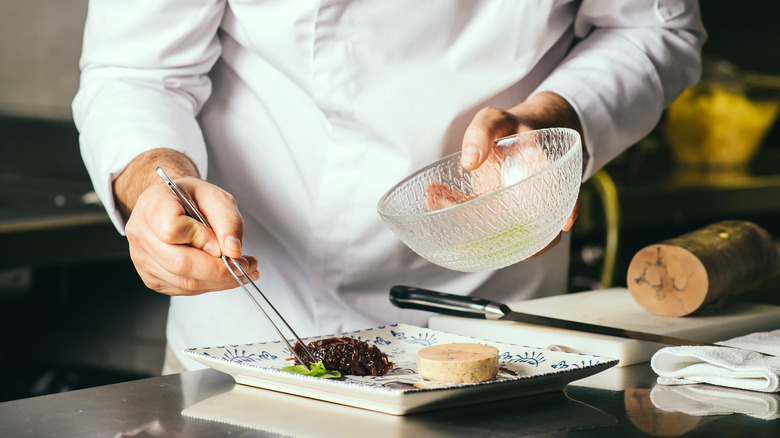Why Foie Gras Is So Controversial
It's been banned in countries across the world, such as Israel, India, and the United Kingdom. The state of California banned its production and sale. An enacted bill in New York City, set to take effect later this year, would prohibit its sale within city limits. Chefs who use it have faced criticism and, in some cases, even received death threats. It has stirred controversy, protests, and anger amongst animal rights activists, business persons, farmers, and even whole nations. What is it that is the cause of all this fervor? Foie gras.
Foie gras, according to Britannica, is a delicacy in French cuisine. It is believed to have descended from traditions in Ancient Egypt and Rome before taking hold in France in the 14th century. Foie gras — French for "fat liver" — is the liver of a goose or duck that has been fattened through force-feeding or gavage. It is creamy white, filled with fat, and has become a staple of fine dining and a symbol of French cuisine. So what is it about this fatty liver that makes it so controversial? We'll take a look at the two sides of this debate, starting with the case against the production of foie gras.
The case against foie gras
The main issue that many have with foie gras is the methodology of force-feeding. As described by PETA, the process of force-feeding, or gavage, involves a long tube being forced down the throat of a duck or goose, during which a little over two pounds of grain and fat are pumped into their stomachs. This process happens twice daily, leading to the enlarging of the liver due to the heavy amount of feed the birds consume.
PETA also claims that the birds are kept in crowded, unsanitary conditions, with many ducks becoming "lame" or "listless" owing to the engorgement of their livers. As a result, the birds are prone to health problems such as fungal infections, illness, and liver damage. Celebrities from Kate Winslet to the late Roger Moore have stood in support of banning the production and sale of foie gras. However, there is a case to be made by some that the process behind making foie gras is good animal husbandry instead of cruelty.
The case for foie gras
Foie gras is a small, luxury item catered towards a very niche market. It's this quality that Serious Eats writer J. Kenji Lopez-Alt states makes it an easy target for protesters. However, Lopez-Alt also insists that "foie gras production should be judged not by the worst farms, but by the best." Most will agree that animal cruelty should be condemned. But is the process of gavage really akin to abuse or torture?
In a documentary for Munchies, Dave Arnold visited a foie gras farm in Dordogne, France, to examine the process firsthand. He found it to be an illuminating experience. The geese spend the majority of their lives outside, happily foraging in the fields. It's only the last few weeks of their lives when they are taken inside, and gavage is performed. In the case of what Arnold witnessed, gavage was handled in a very gentle way that did not seem to adversely affect the geese whatsoever. This is the standard that many foie gras proponents believe the industry should be judged by.
The bigger culinary picture
Apart from the feelings towards the birds who ultimately produce the foie gras, there is a bigger picture of what foie gras bans could do for businesses. In France, as seen in the Munchies film, foie gras is a way of life. As farmer Nathalie Mazert makes clear in the film, everyone eats foie gras in France. It's tradition. It does not carry the stigma it has in the United States.
There's also the issue of allowing people to choose the foods that they want to eat and allowing chefs to cook freely. Though a federal judge overturned California's SB 1520 (see Wine Spectator), the ban shut down the only foie gras producer in the state. Similarly, the New York City ban, set to go into effect this November, has been met with similar concerns in the culinary community. As Jenny Chamberlain of Hudson Valley Foie Gras told Business Insider, "It (the ban) is very dangerous for agriculture ... What's next? Chicken?"



